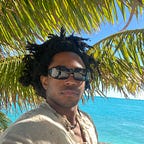Charles Lindbergh, Controversial Past Celebrity
Charles A. Lindbergh is remembered for being the first person to fly solo across the Atlantic Ocean in an airplane without stopping. This flight, however, overshadows his controversies.
For starters, Lindbergh may have killed his own child. In 1932, his one-year-old child, Charles Lindbergh Jr., was kidnapped. Due to Lindbergh’s celebrity status, the kidnapping drew much attention. It involved prominent entities, including President Herbert Hoover; William J. Donovan, first head of the OSS; several gangsters such as Al Capone and Joe Adonis; Major General Norman Schwarzkopf Sr., and the FBI, the Coast Guard, and the INS. It motivated Congress to pass the Federal Kidnapping Act, felonizing interstate kidnapping. It was the crime of the century, a “bigger story than the resurrection of Jesus”, and a less depressing distraction from the Great Depression. Eventually the child’s mutilated body was found in some woods near Lindbergh’s house. About two years later, pitchforks and torches still brandished, a German immigrant was arrested, charged with the crime, convicted on circumstantial evidence, and then sentenced to death.
Problematically, Lindbergh was placed in charge of the investigation, and he frequently intervened, including in demanding that his deceased child be cremated rather that thoroughly autopsied. In addition, his celebrity status shielded him from suspicion. There’s reason to suspect that Lindbergh, while sporting with his son, may have accidentally killed him. There’s also reason to suspect that Lindbergh, influenced by racial eugenics, was disappointed in an apparent birth defect in his child and desired a very-late-term abortion. In either case, the conspired kidnapping was possibly a coverup.
And, yes, Lindbergh was a racial eugenicist. He once commented, “We can have peace and security only so long as we band together to preserve that most priceless possession, our inheritance of European blood, only so long as we guard ourselves against attack by foreign armies and dilution by foreign races.” To be fair, in an era of outspoken racial supremacy and before the Holocaust revealed the logical conclusion of eugenics, Lindbergh’s racism was not atypical. Henry Ford, “inventor” of affordable cars, publisher of several antisemitic writings, and the only American positively mentioned in Hitler’s Mein Kampf, shared that when he and Lindbergh spent time together, they spoke only negatively of the Jews. So outspoken was Lindbergh in regard to white supremacy and Nazism that President Franklin D. Roosevelt himself worried that Lindbergh was secretly spying for the Third Reich. Despite the fact that by the 1930s social scientists had offered more parsimonious, non-racial explanations for human behavior, Lindbergh, for the rest of his life, never disavowed his ideas on race or eugenics, though he did become less public after visiting a concentration camp.
In private, Lindbergh propagated the white race. He sired several illicit children. He impregnated at least four women (one of whom was his wife, two of whom were sisters, and one of whom was his personal secretary) and sired at least thirteen children by them. Cognizant of the scandal which a quadruple life would cause, he hid his affairs from his wife and compelled his mistresses to not reveal his paternal identity to anyone. He used a pseudonym when visiting his mistresses and saw his children no more than twice per year. His concealed children grew up not knowing their father, not until ten years after Lindbergh’s death when one of his children, suspicious, decided to have a DNA test.
—
